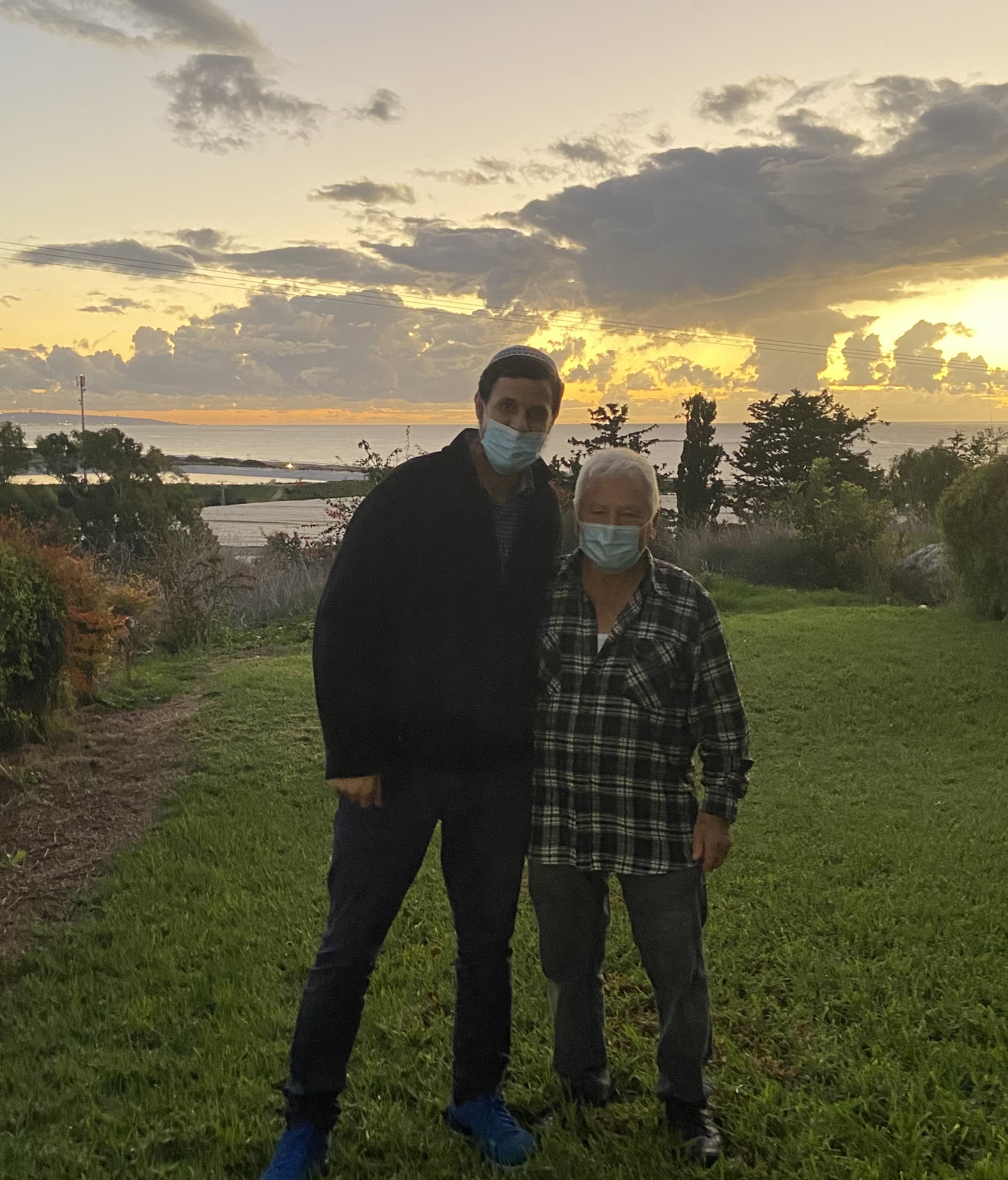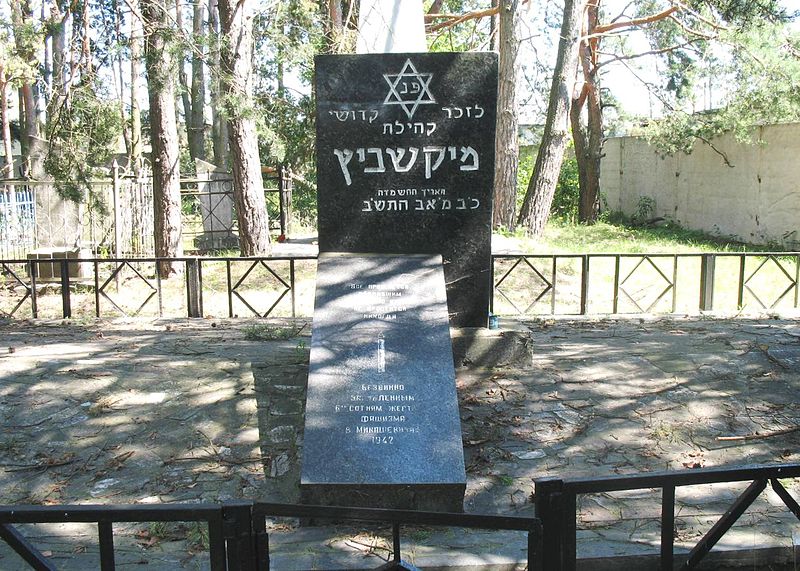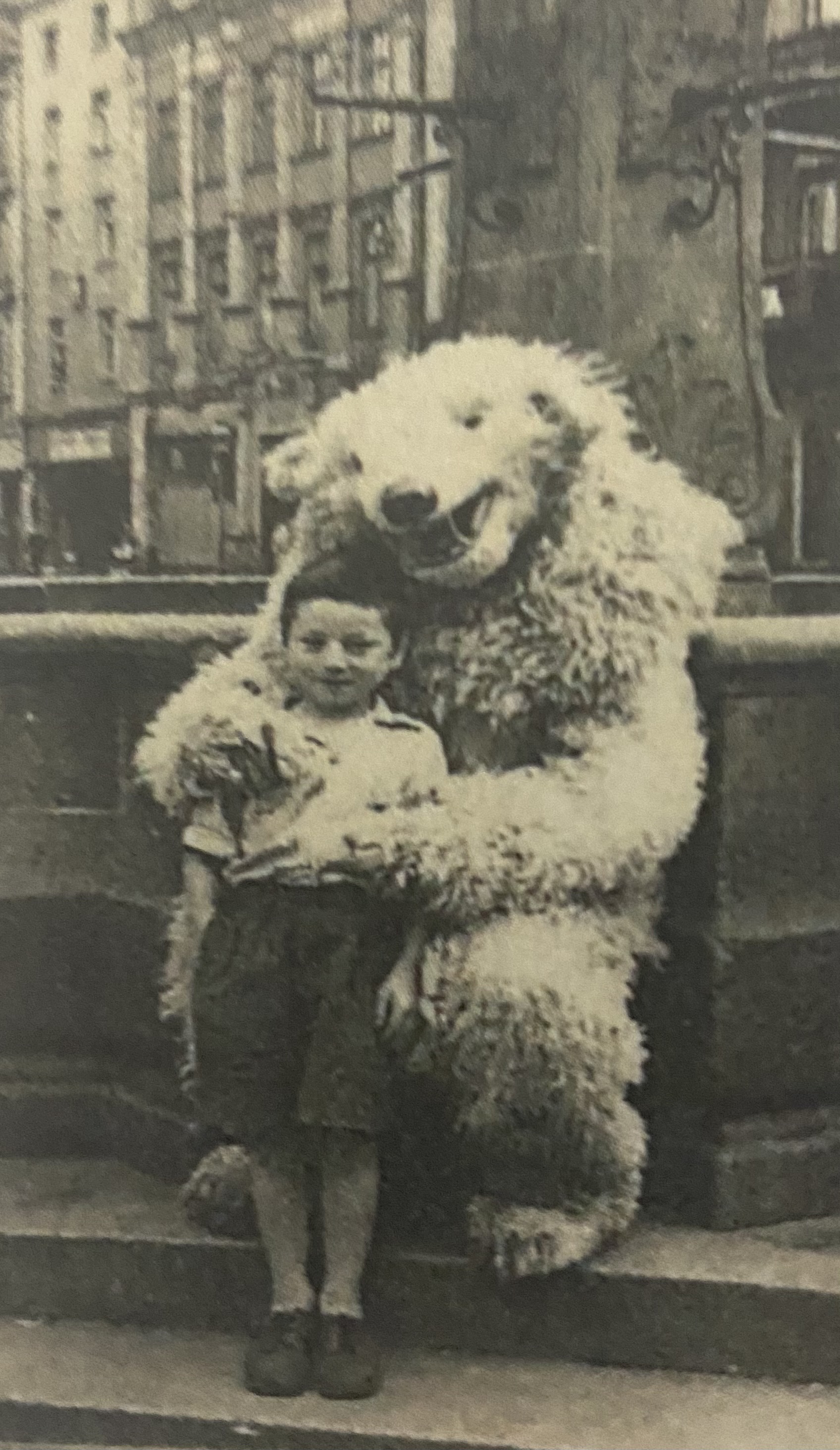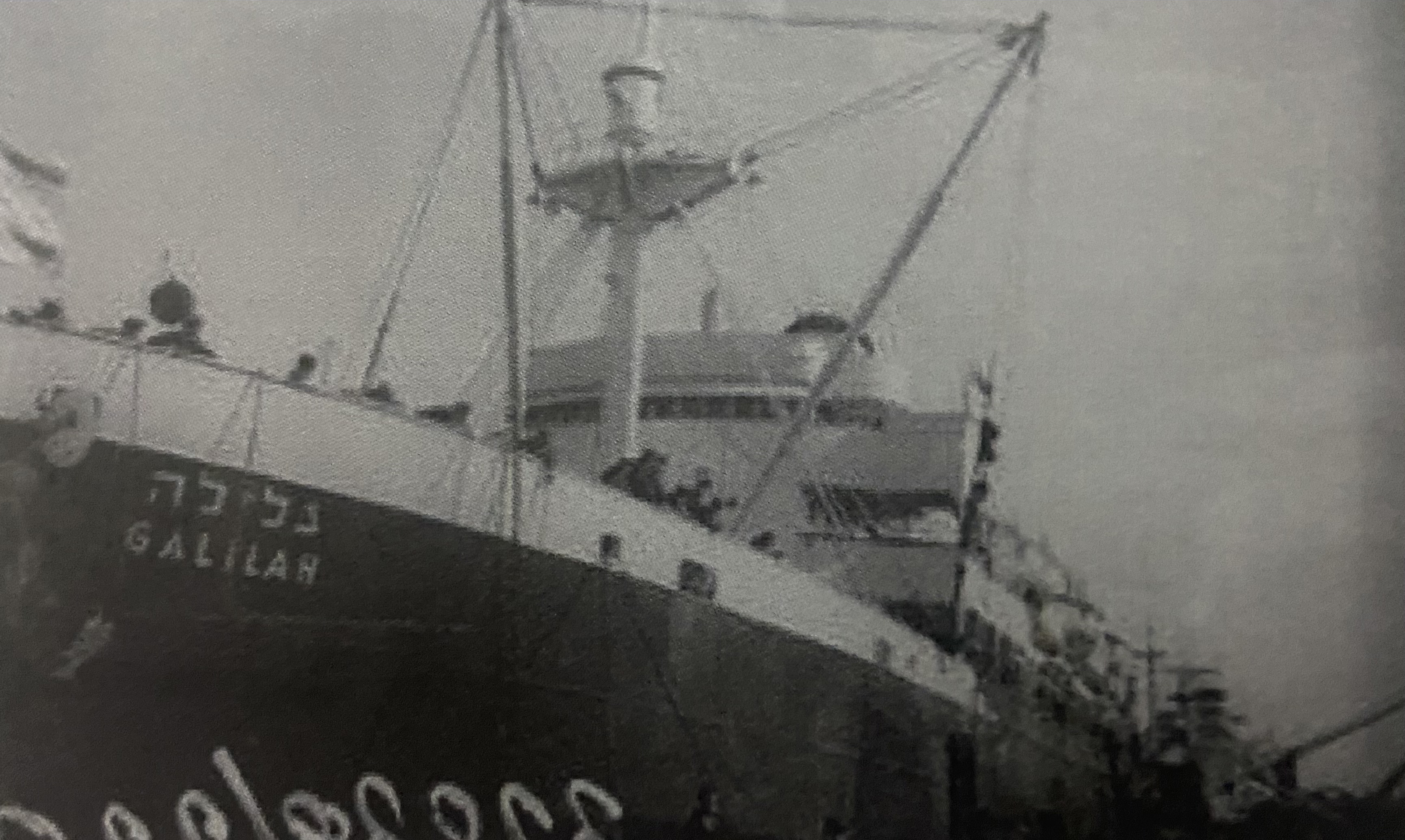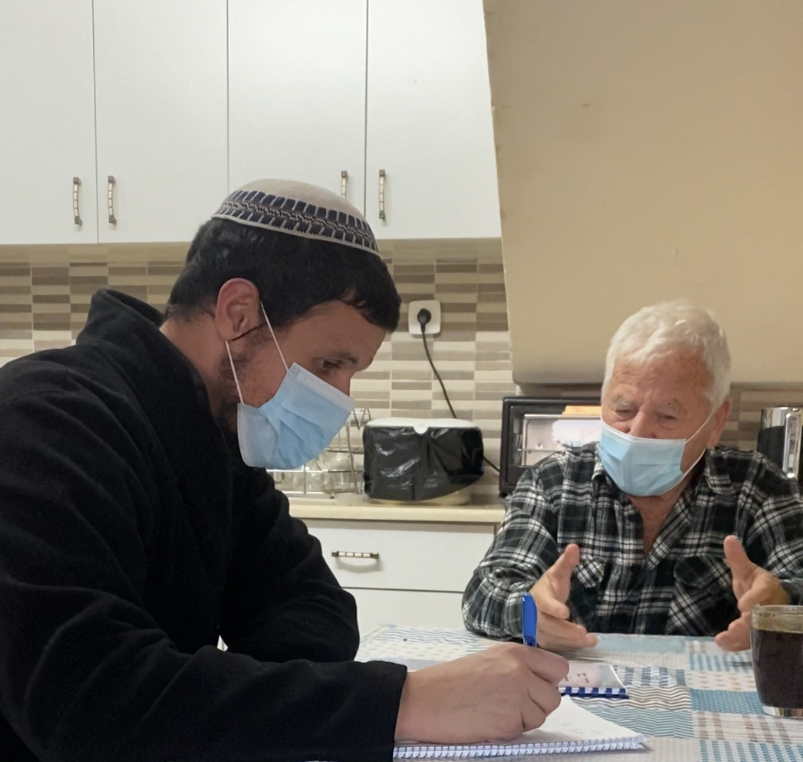Gadi was born to Hannah and Aharon Zilberman in 1940, in the city of Mikaszewicze in Belarus. From what is known to Gadi, his mother fled from Poland to Belarus in 1939 just before the war. Gadi believes that his mother fled in the wake of news passed on by her husband, Aharon, who was a soldier in the Red Army. Gadi sadly says that he never got to know his father, as his father fell in combat during the war.
Because he was so young during the war, Gadi's memories are very limited. In fact, his memories begin when the Nazis occupied the area where he and his mother had been living in Belarus. Just before the Nazi occupation, the Soviet authorities transferred them to the city of Margilan in Uzbekistan. Gadi believes that the help his mother received from the Soviet authorities in escaping and re-settling was in recognition of the fact that his father had served in the Red Army and fell in combat while on duty.
Mariglan was not a big city but it had well-developed industries, especially textile manufacturing, including silk. When Gadi is asked about his childhood in Margilan, he says: "Our place of residence was actually a long barracks that housed about 50 families. The sanitary conditions were difficult. The toilets were outside. But at least I was with my mother.
My mother worked about 18 hours a day in two shifts: in the first shift, she worked in weaving and in the second shift, she was a kitchen worker, which left me most of the day without a parent. The food at the place was very limited. I always felt terribly hungry. The only luck I had was that my mother was working in the kitchen, so every now and then she would sneak some food to me. In the evening, I would crawl under the factory fence and meet her in the yard and get some soup and bread from her, which was considered a big dinner then, and that's pretty much how I managed to get by until one time when I had a severe dysentery and was taken to the hospital. I was hospitalized for a long time. Of course, because my mother wasn’t with me during that time, my condition worsened. My baby teeth fell out, probably from infections and malnutrition. I remember that one of the doctors told me that green onions could help me. After I managed to get a little stronger, I realized that there was a private garden belonging to one of the staff members at the hospital where he grew green onions. I used to sneak into the little garden and steal the onions. I just wanted to survive and, thank God, my mother and I did survive.
Shortly after the war ended, at the end of 1945, the Poles allowed all Polish citizens to return home to Poland. The journey from Uzbekistan to Poland took about three months on trains that had been used to transport cattle. The reason the journey took so long was because most of the tracks were damaged or destroyed during the war. There were around 50 people in every car. It was quite crowded but there was no choice so we got along.
One of the events I remember from the trip was when we once stopped at a certain place. Usually when we stopped, we would get off the train and cook food from what we had and when it was time to continue the journey the train would sound its horn three times and after the third warning, the train would leave. If you were late, you would be stuck alone in the middle of nowhere. That time, as I was climbing the wooden ladder onto the train right after the third warning, the train started moving. I lurched and almost fell. At the last second, someone quickly grabbed me and threw me inside. A moment later, the ladder I had climbed broke into pieces in a collision on the tracks. To this day, I think about what would have happened to me if not for the person who pulled me inside.
When we finally got to Poland, we were received by representatives of the Jewish Agency and they settled us in the town of Świdnica. Each family received a small apartment in an absorption center in a huge building that had been a school. About six months after arriving in Poland, my mother married my stepfather, Aharon Batman, who was 25 years her senior. Except for one person who survived, all of my stepfather's family had been murdered in the Holocaust.
About a year later (in 1947), I started school. The school was a Jewish school and even though only about two years had passed since the end of World War II, there was still a great deal of hostility towards Jews that was also shown by the Gentile children. We would walk to school in pairs and we would stock up on ink as a "defense weapon" against the harassment of the gentile children. I had roller skates so I would always check out the area before the other kids to see that everything was safe. I always looked out for my friends. I remember the camp at the end of the first school year. We were taken to a compound that had served as a death camp during the war. We were shocked! We saw the crematoria there; we smelled the smell of death. To this day, I don't understand why (we were taken there). There was no merit in such a thing and especially because we were just children. It just exposed us to the horrible reality of the Holocaust.
In the years that followed, I joined the “Hashomer Hadati” religious youth movement and the “Jabotinsky” movement, where I first learned about the Land of Israel and about aliyah and Zionism. About four years after I started school (in 1951), we decided to immigrate to Israel. The journey began with a five-day train ride from Poland to Venice, Italy, where I saw a ship for the first time, and I was very excited. The ship we sailed on was called the "Galila", a cargo ship that had been converted to a passenger ship. Of course, the crowding was terrible, in addition to the very difficult weather during the voyage. A lot of people vomited, but after four challenging days we arrived in Israel."
Gadi's family first settled in Pardes Hanna. Gadi himself was educated and raised in Kibbutz HaMa'apil and when he finished high school, he enlisted in the Nahal Battalion of the IDF where he met his wife Ilana. The couple built their home in Kibbutz Rosh HaNikra where they raised their three children. They have seven grandchildren. They still live in Rosh HaNikra today.
In conclusion, it is important to Gadi to end his story with a message to the younger generation: "Accept and respect every person, no matter if he is a Jew or a Gentile. Hatred is a destructive thing!"
